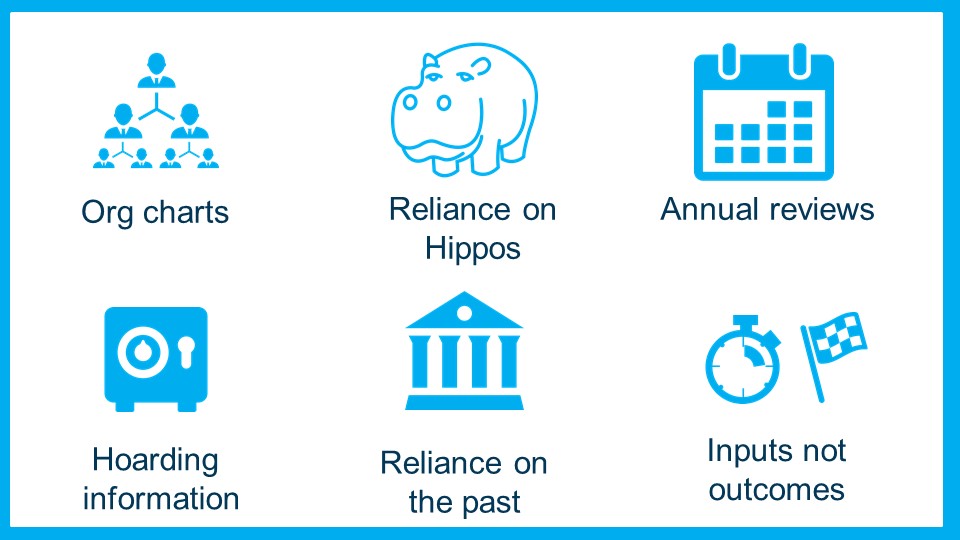 People love lists. During masterclasses with managers and leaders, I often get asked for a list of obvious pitfalls and things to avoid when leading in the future of work. There are plenty of areas to consider, but some of the obvious ones future of work leaders should consider include:
People love lists. During masterclasses with managers and leaders, I often get asked for a list of obvious pitfalls and things to avoid when leading in the future of work. There are plenty of areas to consider, but some of the obvious ones future of work leaders should consider include:
Beware of the HiPPO
HiPPO is a cautionary phrase borrowed from Google, it stands for the “Highest Paid Person’s Opinion”. It’s a reminder that in a rapidly changing world, insight and solutions can come from anywhere and anyone, not just the high-ups. Senior leaders do have to make the big calls and decisions, but this needs to be done after considering everyone’s thoughts, ideas and opinions, not just their own. 20 years of technical experience might not be any help now – ideas and solutions during rapid change can, and do, come from anyone.
Over reliance on org charts and hierarchies
Org charts. Most companies have them – but they aren’t really that helpful in a world where agile, flexible teams are needed to come together rapidly to solve problems. An unintended consequence of their existence tends to reinforce unnecessary rigidity, command and control behaviours, silo mentalities, rigid roles and top down communication – none of which are helpful in a world of unprecedented complexity and change.
Annual reviews
Everyone hates them – employees and managers alike and there is very little evidence for their effectiveness. The CIPD estimate that more than 90% of HR managers actually think they are pretty rubbish too. No wonder more and more companies are ditching annual reviews. Instead they promote two-way near-real-time feedback and transparent, outcome focussed performance management. In a rapidly changing World, trying to give/get feedback on something I did almost 12 months ago is, well, so last year …
Hoarding information
In the connected economy, sharing information creates opportunity, influence and leverage. This is the complete opposite to what many managers feel – especially us Gen Xers who were conditioned to think that information was power and therefore we should protect and hoard it. Getting the sharing habit can be hard. Of course there will obviously always be sensitive information that needs protecting, but in my observations, the vast majority of information within organisations could (and should) be shared, with the resultant increase in innovation and, importantly, buy-in.
Focusing on inputs not outcomes
Focusing on inputs, like the time spent on something, is easy but often pretty pointless and can promote unhelpful behaviours such as presenteeism. Measuring appropriate outcomes is far more relevant, allowing flexibility in time, location and importantly process to get things done. Crucially you have to manage against the outcome objectives set by being super clear in what is required and transparently holding people (and yourself …) to account.
Too much reliance on the past
Experience isn’t necessarily enough, especially technical and some conventional business experience which can be very rapidly overtaken with constant innovation and disrupted business models. With change accelerating exponentially, leaders are increasingly faced with situations that they have simply never seen before. This is where being able to quickly bring together smart teams with diverse insights becomes more important than conventional experience. This highlights the one big exception to the experience rule – people are people and people experience is hugely valuable. Communication skills, emotional intelligence, mentoring, coaching, facilitating and encouraging have never been more important.
Of course there are many more, but this list reminds us that the future of work requires leaders to be open to new thinking and to challenge many assumptions. Often our old ways of doing things are hard to shake off, but leaders who adapt will be the ones that will better engage their talent and build competitive organisations.
If you’d like to inspire and enable your leaders to better engage their teams by embracing the future of work, then call Simon on 020 3488 0464 or email simon@simonwalker.org








